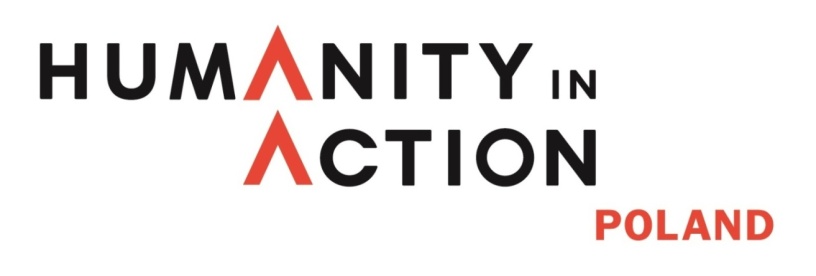Erika Gallagher, Yaromyr Udod, and Agnieszka Przytarska are participants of 2017 Humanity in Action Poland Fellowship for social and human rights activists. By bringing the perspectives of LGBTQI activism from Ukraine, Poland and United States we had realized how invisible the topic of sex education is, especially for LGBTQI teens and youth. While there has been some educational progress in the United States, the issue of sexual education is completely dismissed in Ukraine and Poland, especially when it comes to safe sex for LGBTQI young adults. Sexuality is silenced as something shameful and most lessons are dedicated to the connection of sexually transmitted infections (STI) and homosexuality instead of providing reliable information. Topics intrinsic to queer teens are even more stigmatized due to homophobia and lack of visibility.
We understand and empathize with the confusion and fear many teens experience because of the lack of information about sex, so we have decided to create this small handbook for them to help enable the exploration of the whole spectrum of sexuality (or at least a decent amount of it). Not to mention that sexual education is a part of wider reproductive rights framework thus making these issues fundamental human rights.
“Consent is not the absence of a no; it is the presence of a yes”
Studies show that comprehensive sex education creates a positive effect, “[reducing]… unprotected sex by 60 per cent and significantly [increasing] the use condoms and other contraceptives”- this is true in all countries, including the United States. Given the unlikelihood that Ukraine and Poland will introduce comprehensive sex education in any capacity, our ideas and handbook will hopefully be useful for queer teens who are either in closet or unable to get information on sex from reputable sources. As for the United States, queer adolescents are largely ignored in sex education courses, and the state-by-state system becomes frustrating for regulating content consumed by teens and young adults. There is no doubt that nowadays teens can access all kinds of information on internet but it’s not a big secret that not all of them are reliable. We hope to distribute our handbook both in print and as downloadable PDFs in two languages: Polish and English.
"Use condoms; it's wise"
The whole process of completing the project took roughly three weeks. It had been the spectacular but very intense period of coming up with catchy ideas, drawing visuals and finding info from respectable sources. At the very beginning, Yaromyr was quite skeptical about the idea of creating a handbook in a limited period of time but girls insisted on it arguing that we have an advantage of particular skills in drawing and personal experience with the topic.
We all agreed on a statement that teen sexuality is a taboo in our societies, particularly in Eastern European ones like Poland. Conversely, in US where society has reached more acceptance of LGBTQI community, it’s easier to talk about these issues (though not everywhere). This discrepancy had been seen in our group dynamic. For instance, Erika suggested including a wider spectrum of topics in regards to topics intrinsic to queer teens, whereas Yaromyr and Agnieszka were a bit more cautious despite the fact that they both are active in human rights/LGBTQI activism. This divide actually reflects the biggest challenge we had: how to include as many important topics as possible and at the same time not to make it too frank. It wouldn’t be a problem for people like us but in a conservative country like Poland, many might not understand the scale of our openness.
"Confused about questions? Look into the book!"
Another challenge was to decide which topics are of high relevance and which can be dismissed. It turned that we cannot follow this logic as LGBTQI community is the very diverse group. Apart from bigger groups of gay teens, there are also queer, transgender, intersexual teens who have different experiences; hence some issues are only intrinsic for them. After several brainstorms, we came up with a though that it’s better to start from more inclusive topics in the realms of sexuality education and supplemented it with an info of community centers that can give a help to confused teens.
"There are more options that you think. Go and get tested!"
Once we agreed on the concept, the implementation per se was smooth though with lots of efforts put into the projects. It’s needed to mention that working in a small group is very comfortable especially with like-minded people. So, we managed to create seventeen pages of enticing visuals which became our most interesting element literally during time of campaign.
This book is interactive, but non-exhaustive—we can only fit so much information about such an important topic into a week. We hope that it will help serve as a reliable alternative to random Internet searches, and we have included an entire two pages dedicated to resources such as NGOs and websites to view or contact for assistance in Poland—this includes hotlines, STI testing sites, and more.
We believe that there is nothing shameful about consensual, safe sex, but remember that the topic of safe sex is never-ending, and therefore our book is not complete, nor will it ever be.
Don’t forget—be safe, feel good, and have fun!
Warmly,
No Tabu: Rainbow Edition
Agnieszka, Yaromyr and Erika




























